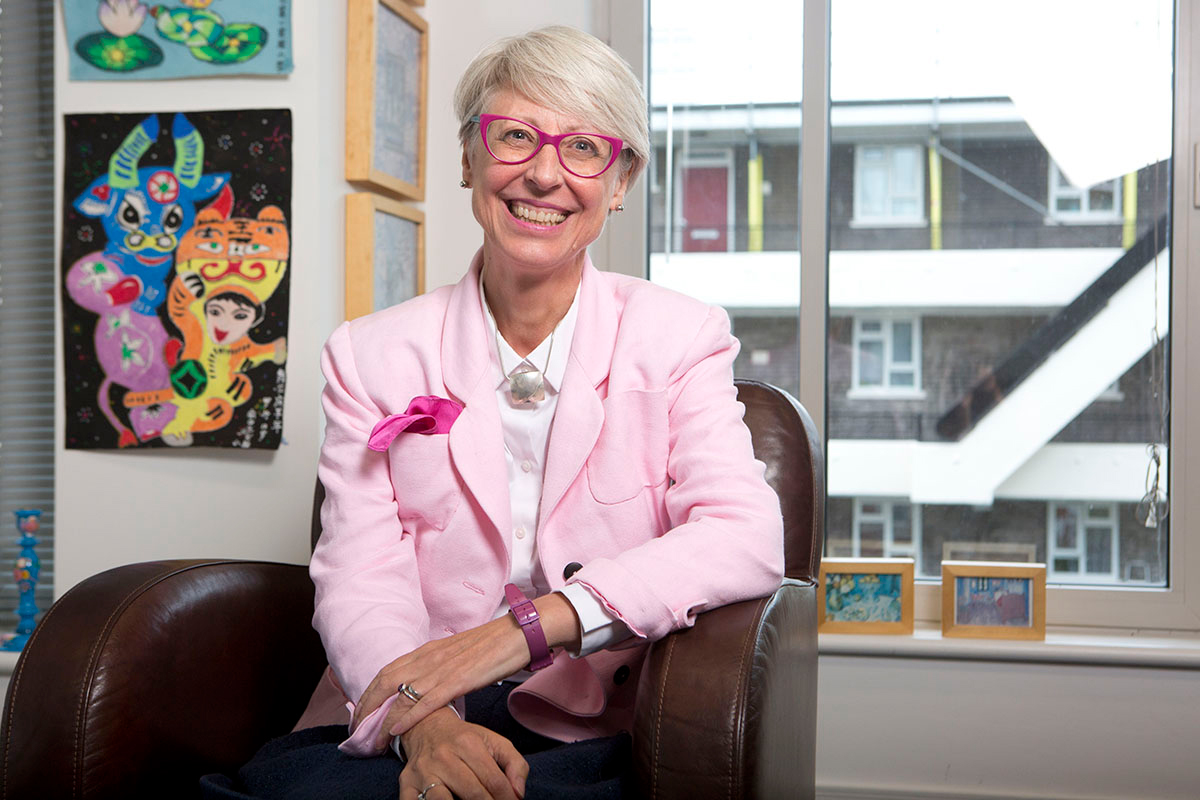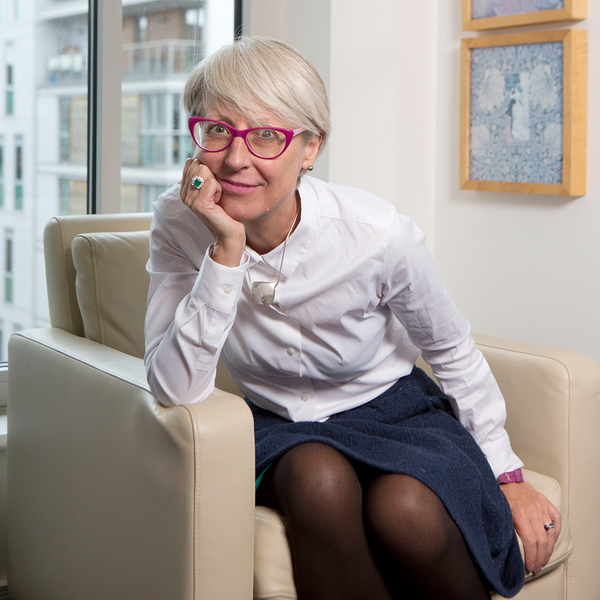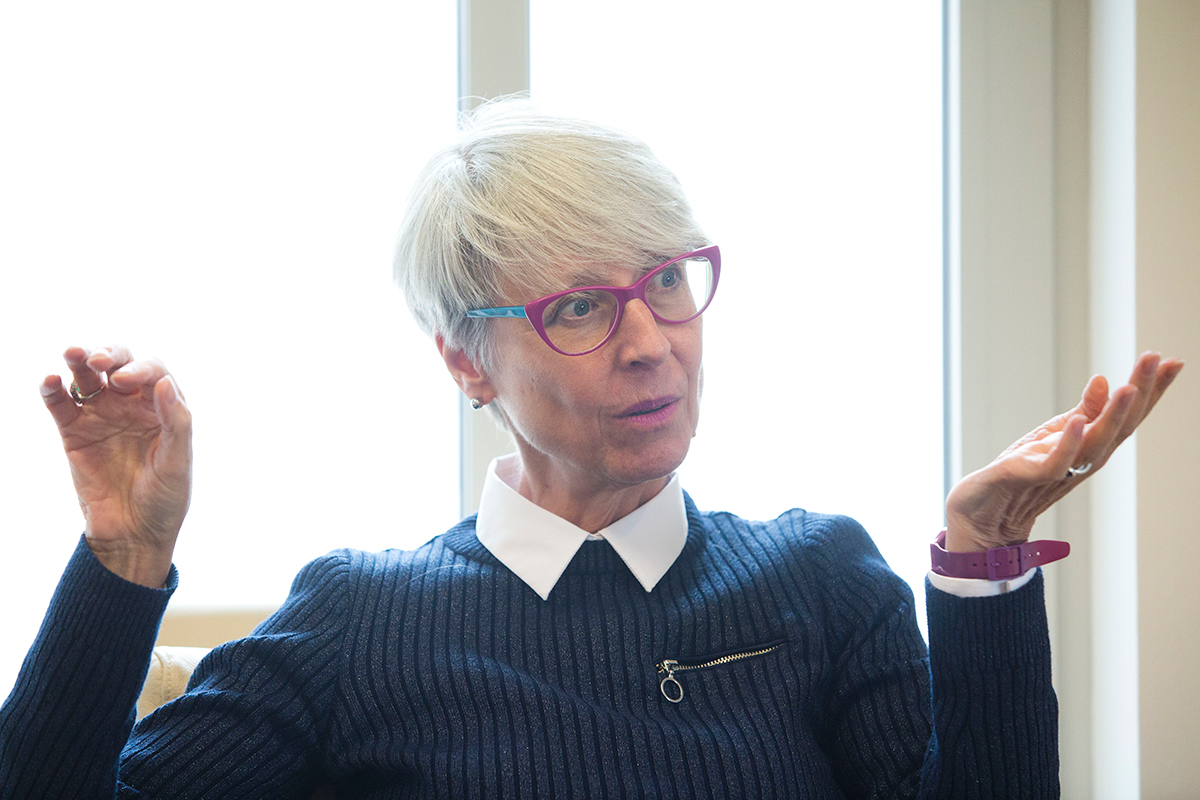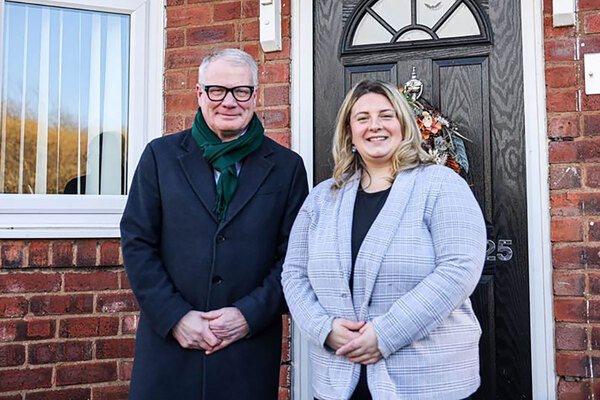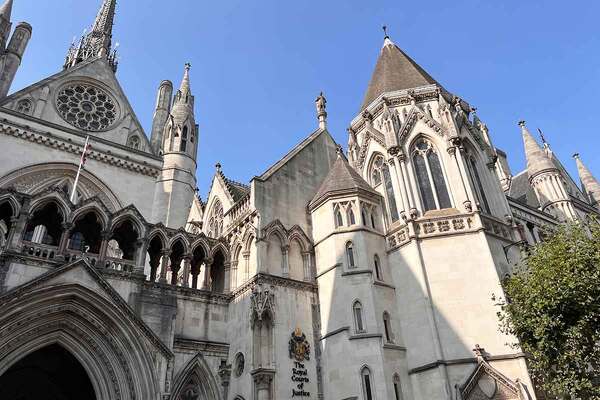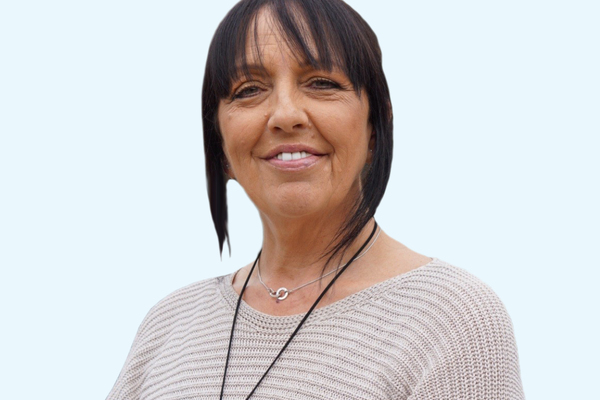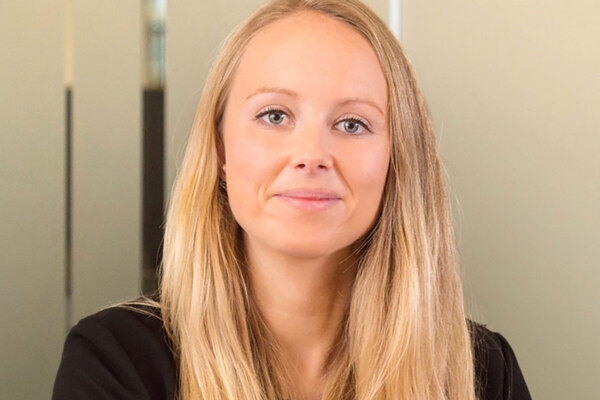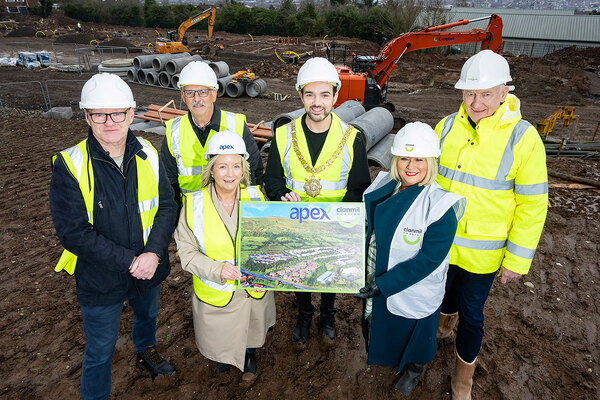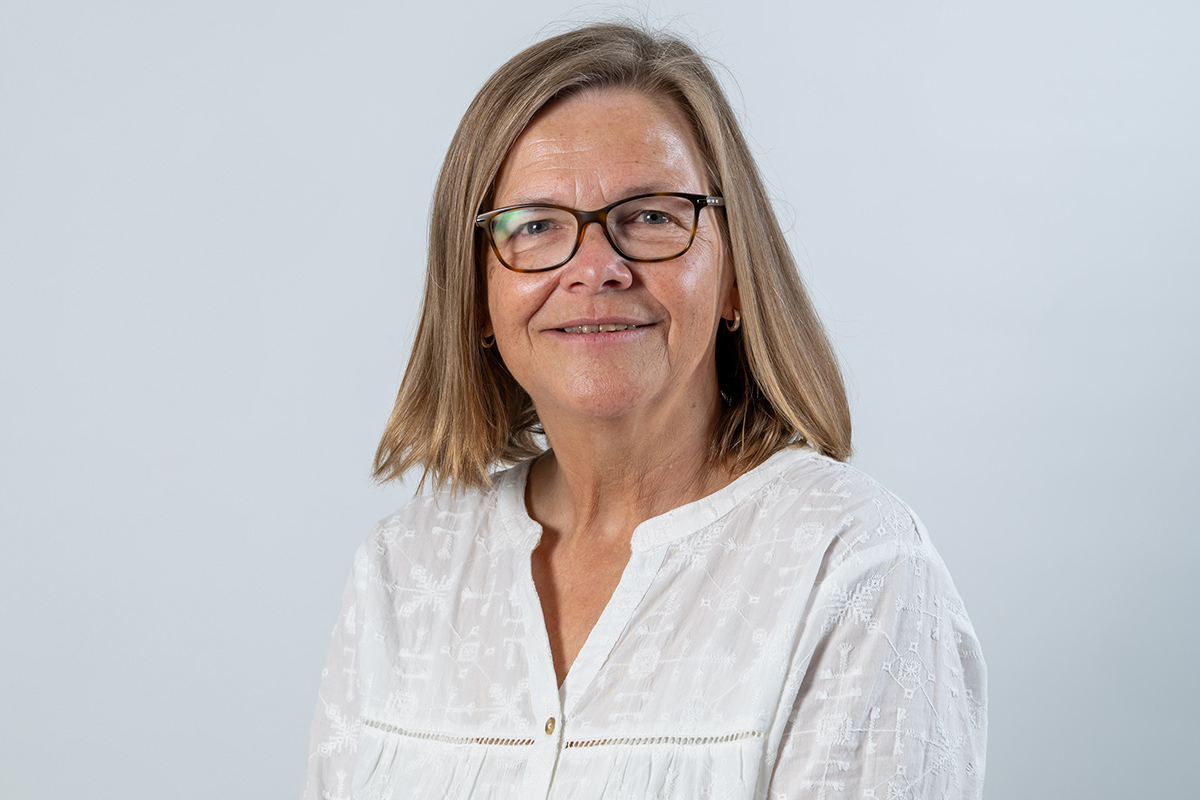You are viewing 1 of your 1 free articles
The book of Notting Hill Genesis: an interview with Kate Davies
Two of London’s biggest landlords are set to merge. Jess McCabe speaks to Kate Davies, chief executive in waiting, to find out about any final obstacles. Photography: Belinda Lawley
Kate Davies is a busy woman. She sports a dashing pink jacket that she made herself, she’s learning Spanish, and how to code. Oh, and she also runs the 32,000-home Notting Hill Housing Trust, which is preparing to merge with Genesis – forming one of the largest housing associations in the capital.
“I think it was Margaret Thatcher who said if you want a speech making, ask a man, if you want something doing ask a woman, and I do really believe that women are busier,” Ms Davies says. “Women hardly ever sit down. I don’t know about your mum and your grandma, but they never sat down in my house – they would always be doing something.”
Notting Hill and Genesis have announced the headline figures for the merger – 400 extra homes a year to be built by the new association, which will have a combined stock of 64,000. But the merger has stoked local fears, with a petition opposing “a one-size-fits-all Orwellian housing system”, led by a drive of “maximising profit through gentrification at any cost”.
At the association’s King’s Cross HQ, we meet Ms Davies in her office – an explosion of colour, with posters and vintage toys framing her view of a block of council housing. The final headquarters of the new organisation isn’t finalised, but it’s hard to envisage Ms Davies moving far from Notting Hill.
Merging spirits
The new organisation will be called Notting Hill Genesis, and Ms Davies is keen to assert that the spirit of both organisations will be ported over into the new association. The name is important. “We felt very much part of the area when Grenfell happened,” Ms Davies says (Grenfell is on Notting Hill’s patch.
The trust owns many homes nearby and used three flats in the block for temporary accommodation – of the three families living there, two tragically died in the fire and the other lost a family member). “And to me that showed we are a community-based organisation, we’re a local organisation, we’ve got roots, we’ve got history, we’ve got context, friends, our tenants are on our board, our staff live in the area. A lot of people lost people, or knew people who lost people, and it’s a very real thing.”
She sees Notting Hill’s nomenclature as a parable about how the trust has helped transform the area since its origin in 1963, becoming wealthier without displacing tenants. “I feel that’s more valuable than a made-up name,” Ms Davies says.
Both Notting Hill and Paddington (where Genesis started) “were areas of poor quality private rented housing, immigrants and exploitation and oppression”, Ms Davies says. Both associations helped to transform areas which have become wealthier and arguably part of the hollowing out of London’s poor. She points out the associations’ residents who moved in during the 1960s and 1970s stayed in the area rather than being displaced. “I think that is the argument for housing associations: we don’t gentrify, we improve an area while preserving a community.”
So how is the merger going? “We’re battling with the banks. It makes me pretty angry because I feel we need every penny we have at the moment to meet social needs,” Ms Davies says, forthright about the difficulties of getting permissions and renegotiating loans. “The more protracted they are the more depressing it is because that stands in the way of what our two boards have decided to do, and what we believe is massively in the interests of London, our tenants and our staff.”
Once lenders are satisfied, the deal is put to a vote of shareholders (tenants, former board members and community members) of both Notting Hill and Genesis. Still, Ms Davies seems confident that approval will be gained and the merger completed.
Top job
In terms of her own job, how hard was it to decide who would be chief executive of the merged organisation? “Neil [Hadden, chief executive of Genesis] decided not to stand. I was happy to go up against him, and if I had been selected as the deputy chief executive I would have carried on working for the organisation,” Ms Davies says. Mr Hadden is leaving following the merger.
By October the shadow executive will be appointed and the merger possibly completed as soon as Christmas, or early 2018. Both associations are knocking on the doors of thousands of their residents as part of the consultation process – at the time of our interview, Notting Hill had spoken directly to about 3,500 of its tenants and says the reaction has mostly been positive, despite the opposition of a few.
Ms Davies aims to soothe concerns. “The first question our staff are going to ask is, ‘am I going to lose my job’, and the first question a tenant is going to ask is, ‘am I going to lose my home?’ And to me those are perfectly normal reactions which I would feel myself in that circumstance.” She has been reassuring staff (the plan is zero redundancies, although staff who leave may not be replaced to make savings) and tenants (there will be no loss of homes or changing of rent that wouldn’t have happened anyway).
“I think certainly our work is showing that most tenants and staff can see the benefits. Then tenants and staff start to think, what can we get out of this? Can I get a better job? Can I do a job I’ve always wanted to do, that I haven’t currently got, or will it mean more opportunities for moves? Can a combined organisation provide more homes? Yes. Can a combined organisation offer better services? Yes.”
Ms Davies won’t commit to what exactly those new opportunities will be at this stage, but has some ideas, beyond the promised new homes and savings.
One aim is to help the vast number of young people in London stuck in shared housing, an issue close to home for the chief executive because her three children “effectively” live with her, thanks to the capital’s
housing crunch.
The issue unites Londoners. “Wherever we are in the salary bracket we’ve all got the same issue – that there’s no hope for our kids.”
Sad staff stories
Speaking to her own staff – some on salaries of £25,000 – brought the issue home further, Ms Davies explains. “They’re all in shared houses, or even shared bedrooms, or living in places that are disgusting. I was in tears when they told me their stories because I don’t think people should have to live like that. If they were in the social sector we would consider them homeless in those circumstances.”
It’s a difficult question – what can social landlords do about people who won’t be eligible for social housing but can’t afford to rent more than a room? What do you do when a housing association’s own staff members reside in conditions the boss compares to homelessness? This is exactly what housing associations are meant to fix, isn’t it? Ms Davies says: “It is on our agenda, and it’s something we’ve talked to people about: is there good quality shared housing, or a postgraduate housing option for people that’s affordable? We figured the amount they could afford was about £700 a month, which isn’t very much, and all that gets you now is a room in a shared house. So we are on the case; it’s a challenging area.”
Notting Hill Genesis will be the largest provider of shared ownership in the country, according to the two organisations. But Ms Davies is clear about the limits of who can afford it – even for some of her own staff, shared ownership is just a dream. “The number that are sold now to social tenants are tiny, because there’s such a gap between their income and the price point.” Of the new homes built by Notting Hill Genesis, around a third will be social rent. “It’s the ideal tenure for people because it gives security and it’s affordable,” Ms Davies says.
Ms Davies, then, is not the type to be cowed from pointing out the limitations of a tenure just because she’s likely soon to be in charge of the biggest slice of it in the country. “I can only be myself, I’m someone who has opinions,” she ruminates. “I think I’d rather be sometimes unpopular than a grey person who lives under a stone.”
Kate Davies on…
Sadiq Khan’s housing policies
“London property prices and London land prices are sufficient to create a large amount of social housing, and I don’t think necessarily every borough and every mayor has pushed that as hard as they can. So I am in the corner of ‘push hard’ and I think Sadiq is doing his best.”
Twitter attacks
“It’s more about the post and the role. I’m getting attacked because I’m the chief executive of a big housing association, not because I’m a human who has feelings.”
Brexit
“I think it’s an absolute car crash and it’s embarrassing. I’ve got three kids – one speaks Portuguese, one speaks Italian and one speaks French. We feel like a European family and it’s disappointing.”
Update: at 4.24pm, 14.09.17 This article originally stated that Genesis and Notting Hill plan to knock on the doors of all their tenants, and has been corrected to state that while they will be knocking on thousands of doors, it won't be all tenants of the two associations.
Update: at 11am, 13.09.17 This article was updated to clarify that Mr Hadden is leaving when the organisations merge, rather than retiring.
